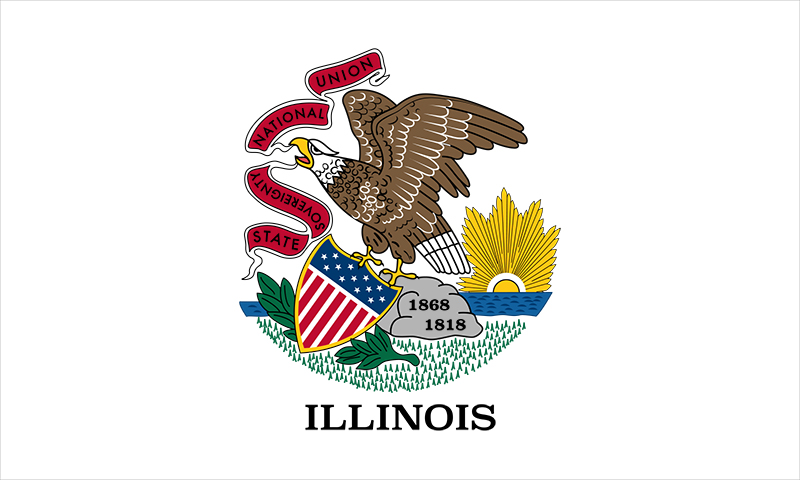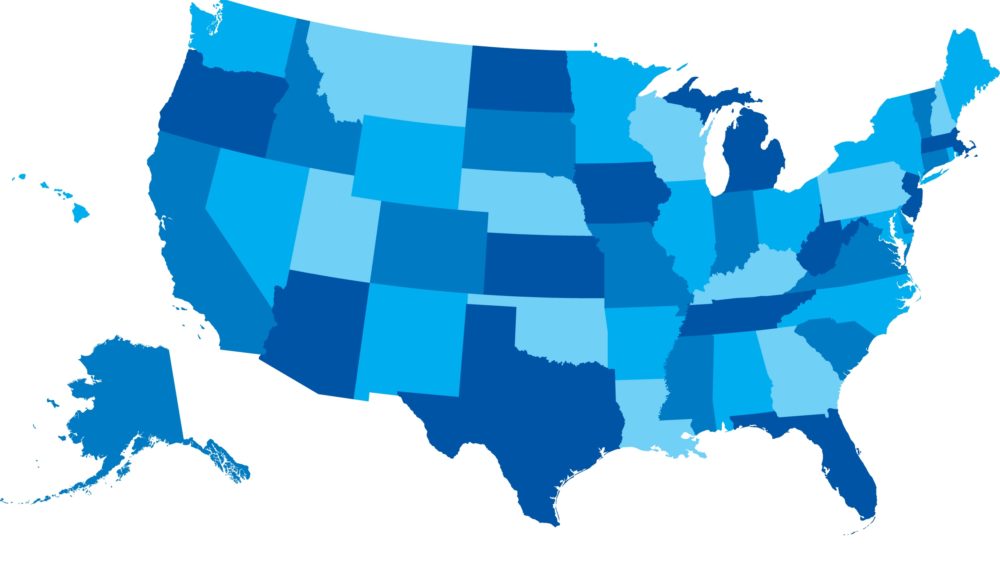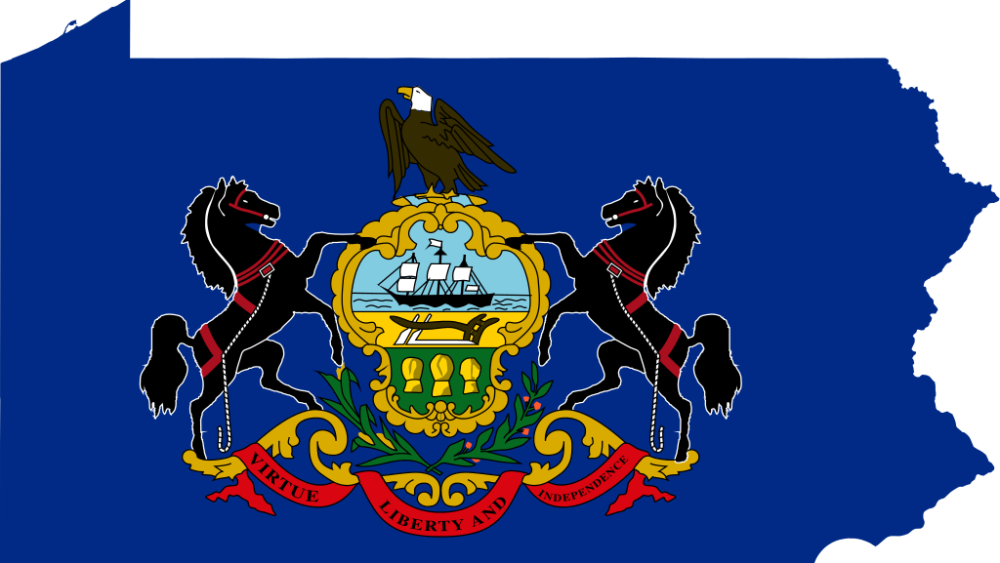December 19, 2023 •
New Corporate Expenditure Law Signed In Michigan
Gov. Gretchen Whitmer signed House Bill 4234, permitting corporations to make administrative expenditures to non-connected separate segregated funds (SSFs). The bill changes the definitions of contribution and expenditure to permit expenditures made by a corporation to provide for the collection […]
Gov. Gretchen Whitmer signed House Bill 4234, permitting corporations to make administrative expenditures to non-connected separate segregated funds (SSFs).
The bill changes the definitions of contribution and expenditure to permit expenditures made by a corporation to provide for the collection and transfer of contributions to an SSF for which it is not a connected organization.
Previously these were prohibited in-kind contributions.
Contributions or expenditures made to facilitate contributions to an SSF through a payroll deduction plan also do not qualify as contributions or expenditures.
Any costs of establishing or administering a payroll deduction plan for contributions to an SSF are not considered expenditures.
The bill also removes a restriction on public bodies using public funds to set up a payroll deduction plan for political contributions from consenting employees.
Public employees may participate in payroll deductions for their labor union’s PAC and the public body is permitted to use public funds to administer the process.
The new law will be effective February 13, 2024.
January 17, 2023 •
Tennessee Contribution Limits Increase
The Tennessee Bureau of Ethics and Campaign Finance (BECF) published revised contribution limits for 2023 and 2024. The per person limit to candidates for statewide office increased from $4,300 to $4,900 per election. The per person limit for the Senate, […]
The Tennessee Bureau of Ethics and Campaign Finance (BECF) published revised contribution limits for 2023 and 2024.
The per person limit to candidates for statewide office increased from $4,300 to $4,900 per election.
The per person limit for the Senate, House, and all other state and local offices increased from $1,600 to $1,800.
PAC limits to candidates for statewide office and for the House increased from $12,700 to $14,400 per election.
PAC limits to candidates for Senate increased from $25,400 to $28,800.
All other state and local office candidates receiving contributions from a PAC increased from $8,300 to $9,400 per election.
BECF adjusts contribution limits in January of each odd-numbered year based on the consumer price index.
October 17, 2022 •
Two Illinois Campaign Finance Reforms Blocked by Federal Judge

State Flag of Illinois
The U.S. District Court for the Northern District of Illinois granted a preliminary injunction enjoining recently enacted restrictions on campaign contributions to judicial candidates. The order by Judge John J. Tharp, Jr. enjoins Illinois from prohibiting judicial candidate political committees […]
The U.S. District Court for the Northern District of Illinois granted a preliminary injunction enjoining recently enacted restrictions on campaign contributions to judicial candidates.
The order by Judge John J. Tharp, Jr. enjoins Illinois from prohibiting judicial candidate political committees from accepting contributions from any out-of-state-person and from imposing limits on the amount a single person can contribute.
The ruling is effective for the 2022 judicial elections.
May 16, 2022 •
Ask the Experts – Political Contributions Before an Election

QUESTION: Are there any rules that pertain to making contributions in the weeks leading up to an election? ANSWER: With this being an election year, it is wise to know what the rules are when making contributions in the days […]
QUESTION: Are there any rules that pertain to making contributions in the weeks leading up to an election?
ANSWER: With this being an election year, it is wise to know what the rules are when making contributions in the days and weeks leading up to an election. Usually, there is a monetary threshold that must be exceeded and typically there is a short turnaround time to disclose the contribution, usually within 24 hours. In some instances, there is an outright ban on contributions.
In California, contributions of $1,000 or more per candidate made by a major donor during the 90-day period before an election must be disclosed within 24 hours of making the contribution. Contributions to ballot measure committees and political party committees are also included within this reporting requirement. The candidate and the ballot measure committee must be on the ballot at the election for which the 90-day period applies. California’s 90-day pre-election period is the longest in the country. If numerous special elections are being held, the 90-day periods may overlap.
In Washington, a contribution of $1,000 or more per candidate made by a registered lobbyist during the seven days before a primary election and 21 days before the general election must be disclosed within 24 hours of making the contribution. This includes contributions to candidates and ballot measures appearing on the ballot at the election for which the seven day and 21-day period applies, as well as contributions to political party committees and PACs. The Washington Public Disclosure Commission has a link on its home page that allows for the electronic filing of this report.
In Florida, opposed candidates must return contributions received less than five days prior to an election.
In Tennessee, a PAC is prohibited from making a contribution to a candidate for office after the 10th day before an election until the day of the election. This prohibition only applies if the contribution is going to a candidate who is running in that election.
These are just a few examples. As we always advise, verify the rules in your state before making political contributions.
For more information, be sure to check out the “Registration and Reports Required” section of the U.S. Political Contributions Compliance Laws online publication on our website. Please feel free to contact us if you have any questions.
January 14, 2022 •
Contractors Required to Reveal Political Contributions

Flag of Pennsylvania - by: Niagara, CC BY-SA 3.0
The Delaware County Council has voted to approve an ordinance requiring contractors to disclose if they have made contributions for candidates running for certain county or state offices as well as political parties or political action committees. Disclosure forms will […]
The Delaware County Council has voted to approve an ordinance requiring contractors to disclose if they have made contributions for candidates running for certain county or state offices as well as political parties or political action committees.
Disclosure forms will be included in the publicly posted agenda materials for the applicable council meeting and will also be posted on the county website.
The ordinance will be effective in April.
January 11, 2022 •
New Hampshire Removes PAC Contribution Limits
The New Hampshire Attorney General’s Office issued updated guidance related to the state’s campaign finance law. The guidance clarifies the effects of House Bill 263, which went into effect on September 28, 2021 and finds that under the updated law, […]
The New Hampshire Attorney General’s Office issued updated guidance related to the state’s campaign finance law.
The guidance clarifies the effects of House Bill 263, which went into effect on September 28, 2021 and finds that under the updated law, there is no contribution limit on the amount of money political advocacy organizations (commonly called PACs) can receive or contribute.
Additionally, though candidates were previously able to establish PACs and fundraise through them, the new guidance prohibits candidates from doing so in the future.
Candidates who registered PACs prior to September 28, 2021 may use the receipts obtained by those committees, but as of that date no new PACs may be established by candidates.
August 4, 2021 •
Texas House Bill Amends Election Code Regarding Contributions to Election Officials
A Texas House bill relating to restrictions on accepting political contributions has passed. House Bill 2283 provides the joint elections commission, county election commission, and county election board may not accept a contribution of $1,000 or more, including the value […]
A Texas House bill relating to restrictions on accepting political contributions has passed.
House Bill 2283 provides the joint elections commission, county election commission, and county election board may not accept a contribution of $1,000 or more, including the value of in-kind donations, offered by a private individual or a business entity, including a corporation, partnership, or trust, or another third party.
Under the bill, the joint elections commission, county election commission, and county election board may accept a contribution of less than $1,000 only with written consent from the relevant political subdivision.
The bill will take effect September 1.
June 15, 2021 •
New York Legislature Adjourns
The New York State Legislature adjourned on June 11. During the legislative session lawmakers introduced and failed to pass bills to ban corporations, limited liability companies, partnerships, and limited liability partnerships from making political contributions; create a restricted period for […]
The New York State Legislature adjourned on June 11.
During the legislative session lawmakers introduced and failed to pass bills to ban corporations, limited liability companies, partnerships, and limited liability partnerships from making political contributions; create a restricted period for vendor contributions; and increase required lobbyist disclosures of political contributions and business relationships with public officials.
The Senate is expected to return later this summer regarding the confirmation of state appointments.
The Assembly is expected to continue an impeachment inquiry through the summer months regarding sexual harassment allegations made against the governor.
May 13, 2021 •
Idaho Senate Adjourns, House to Recess
On May 12, the Idaho Senate adjourned and the House of Representatives voted to recess ending the longest legislative session in Idaho’s history. Passed legislation included campaign finance bills to prohibit foreign political contributions, enable candidate contribution transfers from one […]
On May 12, the Idaho Senate adjourned and the House of Representatives voted to recess ending the longest legislative session in Idaho’s history.
Passed legislation included campaign finance bills to prohibit foreign political contributions, enable candidate contribution transfers from one seat to another, and require statement of expenditures to include the identity of the candidate or measure passed.
Lawmakers also passed a bill allowing the Legislature to convene in special session.
January 8, 2021 •
Federal Contribution Limits Increased in Canada

Elections Canada has published the federal contribution limits for the 2021 calendar year. In 2021, individuals may contribute up to $1,650 to independent candidates, leadership candidates, registered parties, and to, in total, all of the registered associations, nomination contestants and […]
Elections Canada has published the federal contribution limits for the 2021 calendar year.
In 2021, individuals may contribute up to $1,650 to independent candidates, leadership candidates, registered parties, and to, in total, all of the registered associations, nomination contestants and candidates of each registered party.
The limits also apply to any unpaid balance of loans made during a contribution period and the amount of any loan guarantees made during a contribution period.
The limits increase annually by $25 on January 1.

The U.S. Court of Appeals for the Third Circuit permanently enjoined the Commonwealth’s prohibition on political contributions from gaming-license applicants, licensees, and principals of licensees. Judge Richard Nygaard upheld the lower court’s conclusion and granted summary judgment in favor of […]
The U.S. Court of Appeals for the Third Circuit permanently enjoined the Commonwealth’s prohibition on political contributions from gaming-license applicants, licensees, and principals of licensees.
Judge Richard Nygaard upheld the lower court’s conclusion and granted summary judgment in favor of appellees Deon and Hardy.
Judge Nygaard found Section 1513 of the Gaming Act furthers a substantially important state interest in preventing quid pro quo corruption.
However, the restriction imposed on political contributions is unconstitutional because the Commonwealth did not closely draw the scheme to address the issue.
December 13, 2019 •
Appeals Court Tosses Tennessee Nonpartisan PAC Contribution Blackout
On December 12, an appeals court found Tennessee laws barring nonpartisan PACs from donating to candidates within 10 days of an election violate the state constitution and cannot stand. The ruling from the Tennessee Court of Appeals reinforces an earlier […]
On December 12, an appeals court found Tennessee laws barring nonpartisan PACs from donating to candidates within 10 days of an election violate the state constitution and cannot stand.
The ruling from the Tennessee Court of Appeals reinforces an earlier judgment from Nashville Chancellor Ellen Hobbs Lyle and will end the donation restriction facing nonpartisan PACs.
State campaign finance laws had created a 10-day blackout period when such PACs couldn’t give to a candidate, but PACs controlled by a political party could.
The group Tennesseans for Sensible Election Laws argued that the law created a double standard that unfairly penalized nonpartisan groups while giving political parties an advantage.
The Court of Appeals agreed with that argument, ruling against the state.
September 23, 2019 •
Montana Increases Campaign Contribution Limits
Campaign contribution limits increased following an every other year adjustment to match inflation required by state law. The amount an individual or PAC may give to a campaign for governor rose from $680 to $710 per election. The aggregate amount […]
Campaign contribution limits increased following an every other year adjustment to match inflation required by state law.
The amount an individual or PAC may give to a campaign for governor rose from $680 to $710 per election.
The aggregate amount a PAC may give to a candidate for state Senate rose from $2,850 to $3,050.
Additionally, the same amount rose from $1,750 to $1,850 for a candidate for state House.
The Commissioner of Political Practices is in charge of calculating the increase by multiplying last cycle’s limits by an inflation factor provided by statute.
The new contribution limits took effect September 21. Contributions made before that date are subject to the old limits.
However, those who have already given money may contribute again up to the new limits.
September 17, 2019 •
New Hampshire Legislature to Reconvene for Veto Session
The General Court of New Hampshire is set to reconvene this week for a veto session over 55 bills vetoed by Gov. Chris Sununu. The Legislature will discuss bills relating to firearm sales, renewal energy, and campaign finance transparency. Lawmakers […]
The General Court of New Hampshire is set to reconvene this week for a veto session over 55 bills vetoed by Gov. Chris Sununu.
The Legislature will discuss bills relating to firearm sales, renewal energy, and campaign finance transparency.
Lawmakers will review Senate Bill 156 concerning political contributions by limited liability companies.
The bill requires political contributions made by a limited liability company to be allocated to members for the purpose of contribution limits.
The House of Representatives is scheduled to meet for two days on September 18 and 19. The Senate is scheduled for one day on Thursday, September 19.
State and Federal Communications, Inc. provides research and consulting services for government relations professionals on lobbying laws, procurement lobbying laws, political contribution laws in the United States and Canada. Learn more by visiting stateandfed.com.

